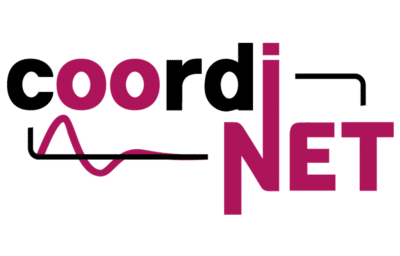On June 17, the European Commission-funded project CoordiNet concluded with a two-day conference about the harmonisation of European flexibility markets in Brussels. The large-scale demonstrations of Transmission System Operator (TSO), Distribution System Operator (DSO), and consumers collaboration schemes in Spain, Sweden, and Greece showed the importance of flexibility to the Green Energy Transition and a concrete set of steps to be taken.
CoordiNet is a flagship of E.DSO activities, delivering important policy and regulatory lessons. The project envisions the cooperation of all stakeholders in concrete terms by putting them into practice. For E.DSO, DSOs, TSOs, and consumers, building on CoordiNet outcomes to utilise available flexible resources could pave the way for a European market and advanced, digitalised, and fit-for-future distribution grids.
The three large-scale demonstrations in Sweden, Greece, and Spain implemented novel market platforms with different characteristics due to local differences, distinct regulations, and diverse market maturity levels, indicating that there is no one-size-fits-all coordination scheme. This impacted the original project ambition of a high level of product standardisation and led the Consortium to focus on refining a common list of product attributes. Integrating these new markets within existing markets has however received attention within all the demos. The following are the demonstrations’ key messages:
- The Swedish demo revealed that business cases vary due to various local factors, deriving that the existing regulations will not be sufficient to unlock flexibility as needed.
- The Greek demo confirmed that local electricity markets enable and increase the procurement of ancillary services from energy resources in distribution grids.
- The Spanish demo highlighted the need for interoperability of distinct flexibility markets.
The CoordiNet vision is that distinct market platforms will become interoperable at the European level. DSOs will thus take on a more proactive role in operation while increasing the integration of renewable energy sources in the system.
— The coming CoordiNet Roadmap will show how flexibility may become more economically efficient for occasional congestion management than reinforcing the grid, says Marco Baron, Project Coordinator, Enel.
Flexibility further provides a prompter solution until grid-based solutions are in place and can allow the postponement of such reinforcements. Alternative flexibility options could solve remaining congestion criticalities after procuring flexible capacity of Flexibility Service Providers. Continued efforts are necessary to harmonise market-based flexibility solutions to allow the replication of best practices at various locations. The CoordiNet project recommends a set of actions to help overcome such and other barriers in establishing and scaling-up flexibility markets on national and European levels.
About:
The CoordiNet innovation action is part of the European Commission’s Horizon 2020 Framework Programme call: TSO – DSO – Consumer: Large-scale demonstrations of innovative grid services through demand response, storage, and small-scale generation | Call ID: H2020-LC-SC3-2018-2019-2020 | Period: 01/2019 until 06/2022 | Total cost: € 19 191 479,11.
Useful links:
- General information: CoordiNet. www.coordinet-project.eu.
- Project results and recommendations: CORDIS. Large scale campaigns to demonstrate how TSO-DSO shall act in a coordinated manner to procure grid services in the most reliable and efficient way. Deliverables. www.cordis.europa.eu/project/id/824414/results.
- Project introduction: C. Madina, I. Gómez-Arriola, M. Santos-Mugica, J. Jimeno, K. Kessels, J.P. Chaves, D. Trakas, Y. Ruwaida: Flexibility markets to procure system services. CoordiNet project. 17th International Conference on the European Energy Market, Stockholm (Sweden). 16 September 2020. https://ieeexplore.ieee.org/document/9221890
- The CoordiNet Project Final Video: www.youtu.be/g4kg4wxEJ-Y







